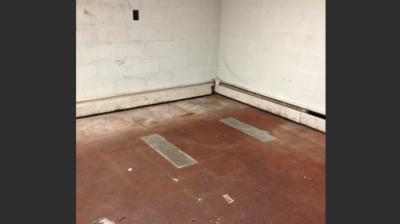
Bockoras v. Saint Gobain Verallia North America
What's at Stake
A Port Allegany glass factory worker asserts in a civil complaint and an EEOC charge that she was discriminated against and harassed because she needed to pump breast milk at work following the birth of her child.
Summary
Bobbi Bockoras is a factory worker at the Saint Gobain Verallia glass factory. When she returned to work after the birth of her baby, she was made to pump breast milk in rooms that were either unsanitary or insufficiently private, and where she was subjected to harassment by her coworkers. After she complained, she was moved from the day shift to a rotating schedule that frequently required her to work an overnight shift, which disrupted her ability to breastfeed or produce enough milk for her baby.
Bockoras was first told that she must pump breast milk in the bathroom, which is unsanitary. She was later told to pump in the first aid room, but was frequently interrupted by male co-workers pounding on the door and yelling in order to harass her.
She was then placed in an old locker room that was furnished with nothing but a single chair on a filthy floor with dead bugs. On one occasion, the chair was removed and she had to sit on the dirty floor. On other occasions, co-workers brought her a bucket jokingly comparing her to a cow being milked, and covered the door handle of the room where she was pumping in grease and metal shards โ€“ a common prank at the factory.
A new provision of the Affordable Care Act requires employers of hourly employees to provide unpaid breaks and a clean and private location, other than a restroom, in which to pump breast milk. It also prohibits employers from retaliating against workers who complain about lack of compliance.
After Bockoras complained about these conditions and the harassment she had faced, she was moved from the day shift to a rotating shift that required her to work a different schedule every few days, including an overnight shift. Even after she submitted a doctor's note stating she should only work days, she was not re-assigned. The disruption in her schedule has affected her ability to nurse. She experienced a 50 percent decrease in her milk supply, her baby has not been feeding properly, and she has had to give the baby formula against her beliefs about what is best for her child.
Bockoras filed a federal complaint and a charge with the EEOC after her employers failed to honor her request to be put back on the day shift and a supervisor told her that they did not consider her co-workers' treatment to be harassment.
Bockoras is being represented by the ภฯฐฤรลฟชฝฑฝแน๛, the Women's Law Project, and the New York office of Debevoise & Plimpton LLP, which is working pro bono.
Legal Documents
-
11/06/2013
Bockoras v. Saint Gobain Verallia North America - Complaint
Date Filed: 11/06/2013
-
11/06/2013
Bockoras v. Saint Gobain Verallia North America - EEOC Complaint
Date Filed: 11/06/2013
